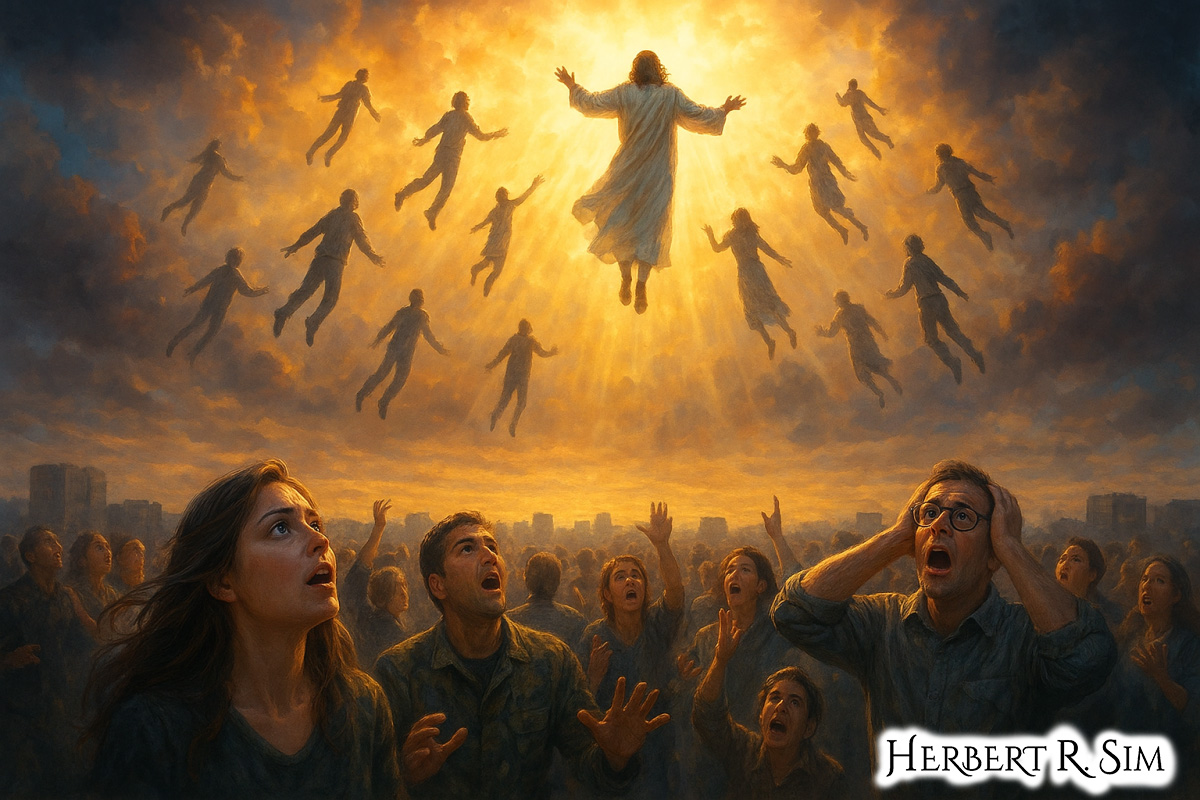
The rapture is one of the most debated and anticipated events in Christian eschatology—the study of the end times. The term refers to the moment when believers in Jesus Christ will be caught up from the earth to meet Him in the air, as described in the Bible. For many Christians, it is a promise of hope and deliverance; for others, it is a mysterious and sometimes controversial doctrine.
Biblical Foundation
The concept of the rapture is rooted primarily in 1 Thessalonians 4:16–17:
“For the Lord himself will come down from heaven, with a loud command, with the voice of the archangel and with the trumpet call of God, and the dead in Christ will rise first. After that, we who are still alive and are left will be caught up together with them in the clouds to meet the Lord in the air. And so we will be with the Lord forever.”
The key phrase “caught up” comes from the Greek harpazō, meaning to seize or snatch away. In Latin translations, the word became rapiemur, from which the English term rapture is derived.
Main Interpretations
While the rapture itself is widely accepted among evangelical Christians, the timing in relation to the tribulation—a prophesied period of global turmoil—varies between theological camps:
Pre-Tribulation Rapture
Believers are taken before the tribulation begins.
Popular in many evangelical and Pentecostal circles; offers hope of escape from God’s wrath.
Mid-Tribulation Rapture
Occurs halfway through the tribulation, after three and a half years.
Seen as a balance between protection and endurance.
Post-Tribulation Rapture
Happens at the end of the tribulation, coinciding with Christ’s second coming.
Emphasizes perseverance through trials.
Pre-Wrath Rapture
Believers are taken before God’s final judgments, but after part of the tribulation has occurred.
Signs and Warnings
Jesus spoke of signs preceding His return in Matthew 24, including:
- Wars and rumors of wars
- Earthquakes and famines
- The rise of false prophets
- The spread of the Gospel to all nations
However, Scripture also warns in Matthew 24:36 that “no one knows the day or the hour” of His return, urging believers to remain watchful at all times.
From my research, and own personal opinion, there is a possibility that this verse is linked to Jewish/Hebrew ‘Rosh Hashanah‘, or “Yom Teruah” aka “Feast of Trumpets” which is also known as “no one knows the day or the hour” — the only Jewish feast that begins on a new moon, which must be sighted by two witnesses and can never be predicted with certainty.
Cultural Influence
The rapture has inspired countless books, sermons, films, and songs. Works like the Left Behind series by Tim LaHaye and Jerry B. Jenkins popularized a vivid fictionalized version of the event. In popular culture, it is often portrayed as sudden and chaotic—planes without pilots, cars without drivers, and widespread confusion.
Criticism and Caution
Not all Christians agree on the rapture’s specifics. Some denominations view it as symbolic of the believer’s ultimate union with Christ rather than a literal, physical event. Others caution against setting dates, pointing to failed predictions that have brought disrepute to the Church.
Spiritual Preparation
Whether taken as literal prophecy or metaphor, the rapture’s core message calls for readiness and faithfulness. In Luke 21:36, Jesus says:
“Be always on the watch, and pray that you may be able to escape all that is about to happen, and that you may be able to stand before the Son of Man.”
For believers, the rapture is not merely an escape from tribulation—it is the fulfillment of the promise to be with Christ forever.
Final Thought:
The rapture remains both a mystery and a source of hope. Whether it happens before, during, or after the tribulation, the emphasis of Scripture is clear: live in a state of readiness, holding fast to the faith, for “the Son of Man will come at an hour when you do not expect Him” (Matthew 24:44).
